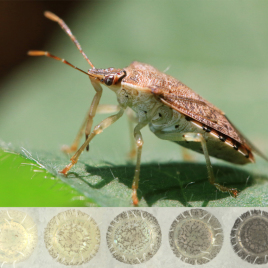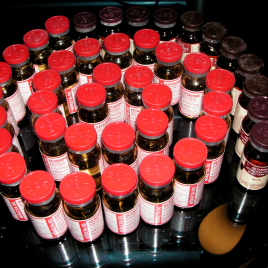Ketamine is a fast-acting ‘dissociative’ anaesthetic previously found to have antidepressant effects in humans. But the negative side effects of ketamine make it a problematic candidate for depression treatment. However, new research published shows that the compound responsible for ketamine’s antidepressant effects is actually formed as the body metabolizes and breaks down the drug. The […]
Tag: biochemistry
Research is too conservative
A pair of papers calls for researchers to take greater risks when choosing research problems to study in order to speed up scientific discovery and innovation. The two papers, one from PNAS and another from the American Sociological Review, used computer models to analyze millions of research papers. The study published by PNAS found that […]

The secrets of stink bugs: A new chemical compound and selective egg colouration
Stink bugs, Podisus maculiventris, are able to change the colour of the eggs they lay to better protect them from UV radiation, according to new findings. The researchers expected the colour variation to come from differing levels of melanin, however they found a new compound responsible for the pigmentation. While stink bugs are the first […]

Why don’t octopuses tie themselves up in knots?
New research indicates that octopus skin exudes a chemical substance that repels its own suckers. Octopus arms – which remain alive for up to an hour after amputation – do not grab octopus skin or objects covered in octopus skin, although they will grab skinned octopus parts. This suggests a chemical repulsion, though the researchers […]
